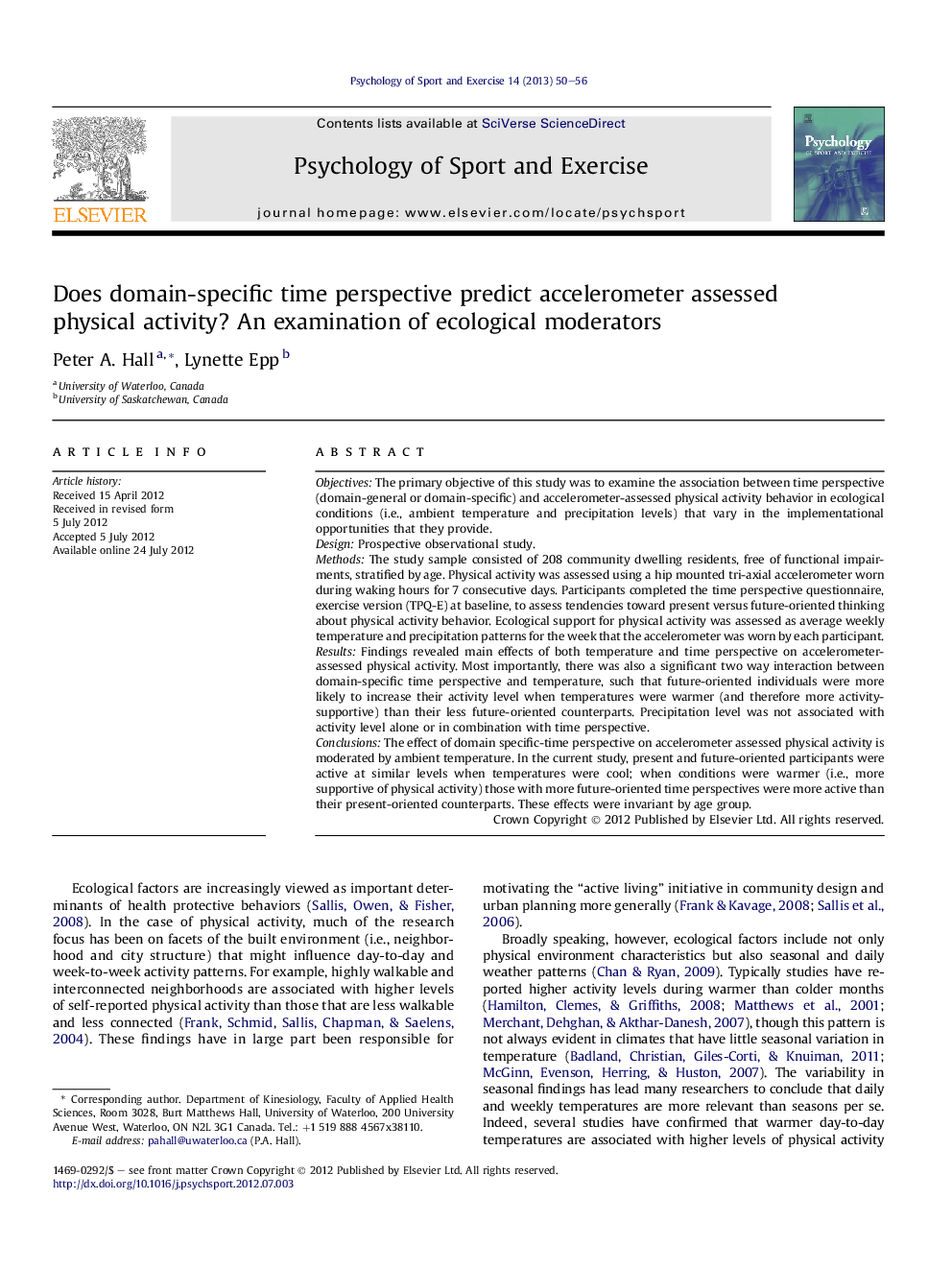| کد مقاله | کد نشریه | سال انتشار | مقاله انگلیسی | نسخه تمام متن |
|---|---|---|---|---|
| 894622 | 1472125 | 2013 | 7 صفحه PDF | دانلود رایگان |

ObjectivesThe primary objective of this study was to examine the association between time perspective (domain-general or domain-specific) and accelerometer-assessed physical activity behavior in ecological conditions (i.e., ambient temperature and precipitation levels) that vary in the implementational opportunities that they provide.DesignProspective observational study.MethodsThe study sample consisted of 208 community dwelling residents, free of functional impairments, stratified by age. Physical activity was assessed using a hip mounted tri-axial accelerometer worn during waking hours for 7 consecutive days. Participants completed the time perspective questionnaire, exercise version (TPQ-E) at baseline, to assess tendencies toward present versus future-oriented thinking about physical activity behavior. Ecological support for physical activity was assessed as average weekly temperature and precipitation patterns for the week that the accelerometer was worn by each participant.ResultsFindings revealed main effects of both temperature and time perspective on accelerometer-assessed physical activity. Most importantly, there was also a significant two way interaction between domain-specific time perspective and temperature, such that future-oriented individuals were more likely to increase their activity level when temperatures were warmer (and therefore more activity-supportive) than their less future-oriented counterparts. Precipitation level was not associated with activity level alone or in combination with time perspective.ConclusionsThe effect of domain specific-time perspective on accelerometer assessed physical activity is moderated by ambient temperature. In the current study, present and future-oriented participants were active at similar levels when temperatures were cool; when conditions were warmer (i.e., more supportive of physical activity) those with more future-oriented time perspectives were more active than their present-oriented counterparts. These effects were invariant by age group.
► We examined the relationship between time perspective and accelerometer-assessed physical activity in a community sample.
► Findings suggested that future-oriented thinking about physical activity was positively associated with activity level.
► The observed association was stronger when ecological conditions were activity-supportive than when they were unsupportive.
Journal: Psychology of Sport and Exercise - Volume 14, Issue 1, January 2013, Pages 50–56